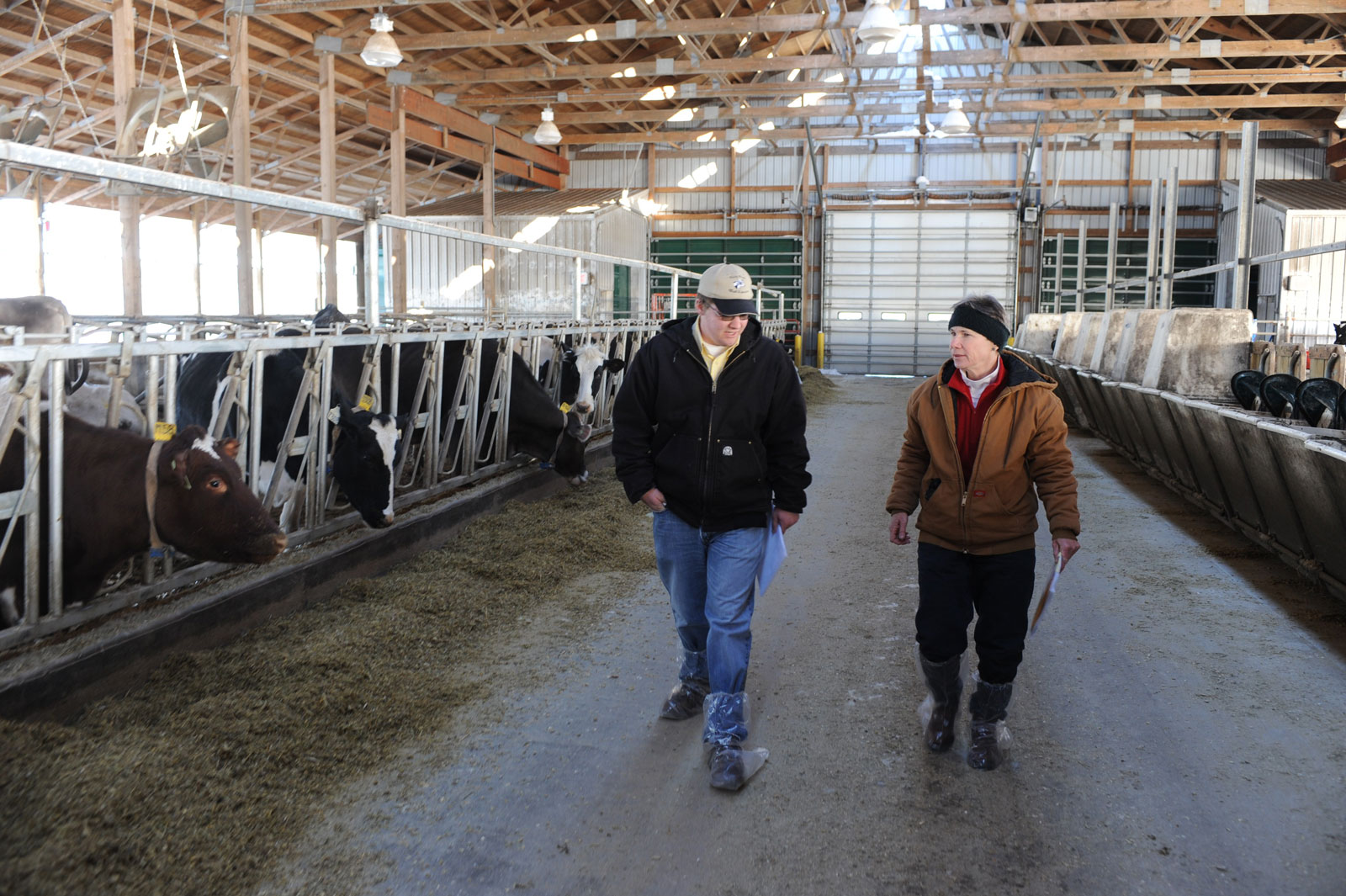
Sustaining The People That Care For The Herds
When Chris Mondak talks with dairy producers, she looks them straight in the eye. She listens. She asks questions to better understand their goals and the obstacles they may encounter. She converses with agbusiness professionals that support the dairy industry with similar intensity.
Mondak, an ISU Extension dairy livestock specialist, uses face-to-face conversations to assess the trends and needs of dairy producers and the industry. She then builds programs that address the issues.
“Dairy specialists are the face of ISU in the counties – and though I can’t know everything the producers ask, they do expect me to know where to go at the university or within industry to find the information,” says Mondak. “It’s up to field specialists to stay connected so we can bring the depth of knowledge and research to fully address the expectations and needs.”
Mondak, who has served northwestern Iowa since 2000, draws on her previous training and experiences as a dairy veterinarian to determine the type of educational programs to make available. She is one of three dairy specialists and 13 livestock specialists working in the field for ISU Extension.
“There is great variety in herd size and dairy management styles in Iowa,” she says. “The challenge of extension dairy field specialists is how to meet the diverse needs of this audience with educational events and resources.”
Mondak has had success with lunch-time peer group meetings that bring producers from neighboring counties together several times during the winter and once in the summer. Peer group members define winter meeting content and follow-up summer activities.
The producers attend peer group meetings because they know the information is reliable and based on research and because they enjoy the time with each other.
“They connect with experts from the university, extension and agbusiness at these meetings,” Mondak says. “But just as importantly the producers are getting off the farm and talking to each other.”
Mondak started a young producers group when she noticed their absence at other peer group meetings. After two sessions, she is pleased by the number attending and the interaction and exchange of ideas that takes place.
Chad Fertig, of Wall Lake, attended the first young producers meeting. “It was a great way to meet and learn from speakers and other producers, especially as my brother and I take on more decision-making responsibilities.”
Recognizing and creating opportunities to develop producers’ social capital is a vital part of extension work, according to Mondak.
“Dairy producers can become very isolated by the nature of their business,” she says. “However, dairy leaders in Iowa recognize that producers must have an active and positive presence in the public realm, both to shape policies and to build trust with consumers.”
Mondak says that encouraging continuing education and leadership development in dairy associations will help to build the producer capabilities needed to sustain the dairy industry.



